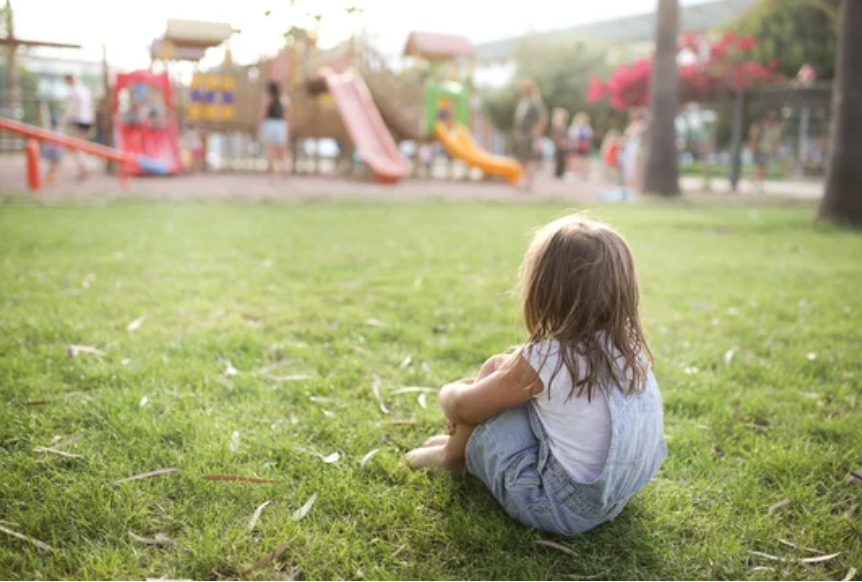The Lost Kids
Growing up in southern West Virginia, the drug epidemic and its effects lingered in the air like the thick fog over the mountains on a July morning. It was always there. For the entirety of my rather young life, at least. I watched as classmates grew up fast…and crashed hard.
Life circumstances mean that some kids get to stay kids, while others grow up too fast. Of course, many of the kids I knew had no choice – they were being raised by their grandparents while their parents were still actively using or incarcerated, shuffling in and out of foster homes, or falling through the cracks and living in unfit households with parents who were at best, neglectful, and at worst, abusive. Drug abuse and poverty go hand-in-hand with generational trauma, and for many of the families in southern West Virginia, generational trauma has roots deeper than a weeping willow. When kids must worry about serious matters like where their next meal is coming from or how they’re going to stay warm during the winter, they have no choice but to grow up. Fast. For too many kids in our state, this is reality: while mom and dad are caught in the insidious throes of addiction, kids are caught in a uniquely insidious cycle in which they must balance the roles of caretaker, provider, protector, guardian, and child.
Children who grow up in this cycle are still children, and they still want (and deserve) to do and have the things that their peers do and have. Some of the wants and needs are basic: they want to go to school and do well in their studies. They might want to play sports or be in band. In teen years, they probably want their crush to like them back or to win homecoming queen. Eventually, they start thinking about going to college or entering the workforce. At the root of all these desires is the basic, inherent need to feel normal. Yet, when a 7-year-old walks into class in dirty clothes, praying that nobody else can smell them, he feels anything but normal. When a 10-year-old makes up excuses to not go on a field trip because she knows money is tight and she doesn’t want to ask her grandma for $10, she feels anything but normal. When a 13-year-old goes to sleepovers but is too ashamed to host one because she knows her house isn’t clean, she feels anything but normal. When a 16-year-old wants to play football but can’t because he works 40 hours a week to help feed his younger siblings, he feels anything but normal. The drug epidemic trickles down and forces children to grow up too fast. Instead of living carefree lives centered around academics, sports, and fun with friends, they worry about grown-up matters like money, food, protecting their siblings, and protecting their parents’ “secret.” In the process of doing all this, they lose so many things: time, innocence, opportunities…and then, it’s time to actually be an adult.
While they might be more independent and better than many of their peers at life-skills like budgeting, cooking, and working, they might find that they’re emotionally stunted. After years of pushing trauma aside to get by, they may find that it doesn’t go away. Now, as adults, they have low self-esteem, they don’t trust themselves, and they repeatedly find themselves in relationships where their needs aren’t met, and they are disrespected – because it feels comfortable. It feels familiar. It feels safe. They aren’t given the same grace to make mistakes as children, because outwardly, they are adults. Yet, there is often a heartbroken, lonely, frustrated child on the inside who just wants guidance, understanding, support, and empathy. Sometimes, this may serve as a catalyst to break the chains of generational trauma. Sometimes, it makes things much worse.
Some of these children grow up and resolve to be “different.” They may abstain from drug use, get a good job, and take other necessary steps to start healing and end the cycle they grew up in. Unfortunately, others do the opposite. Often, children who grow up too fast begin to grow up too fast in other ways. It isn’t uncommon for children being raised in traumatic environments to start experimenting with alcohol, drugs, sex, and other risky behaviors at a much younger age than their peers. After all, they often aren’t supervised or disciplined, they need a coping mechanism, and they may start spending time with older people to fill the void created by their absent parents. Unfortunately, this also makes them vulnerable to sexual, emotional, and financial exploitation at the hands of predators. Thus, the cycle continues.
Trauma creates trauma. In many cases, people who struggle with substance abuse issues were traumatized prior to starting drug use – and drug use brings its own traumas. West Virginia is in the midst of a serious drug crisis, but it’s not going to get better until we are able to increase childhood intervention. Every year of childhood is precious. We owe it to our children to let them be little. Children should be spending their youth growing and developing, not being held accountable for the vices of their parents. If West Virginia truly wants to atone the sins of Big Pharma, we must allocate more funding for programs that benefit children. We must allocate more funding for mental health services. We must allocate more funding to staff Child Protective Services (CPS) and other entities that work hands-on to help these children. We, as a society, must learn to give other adults more grace.


